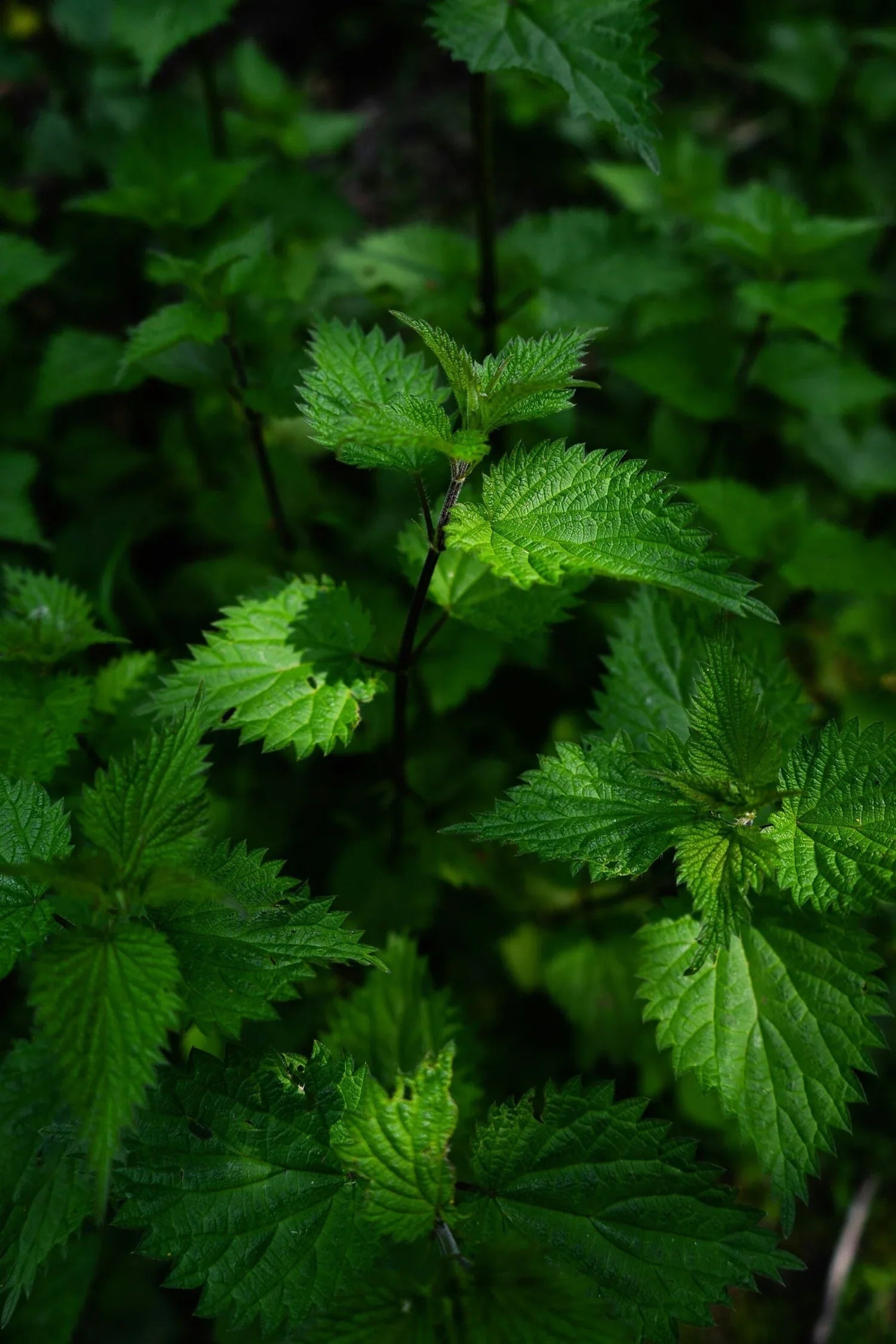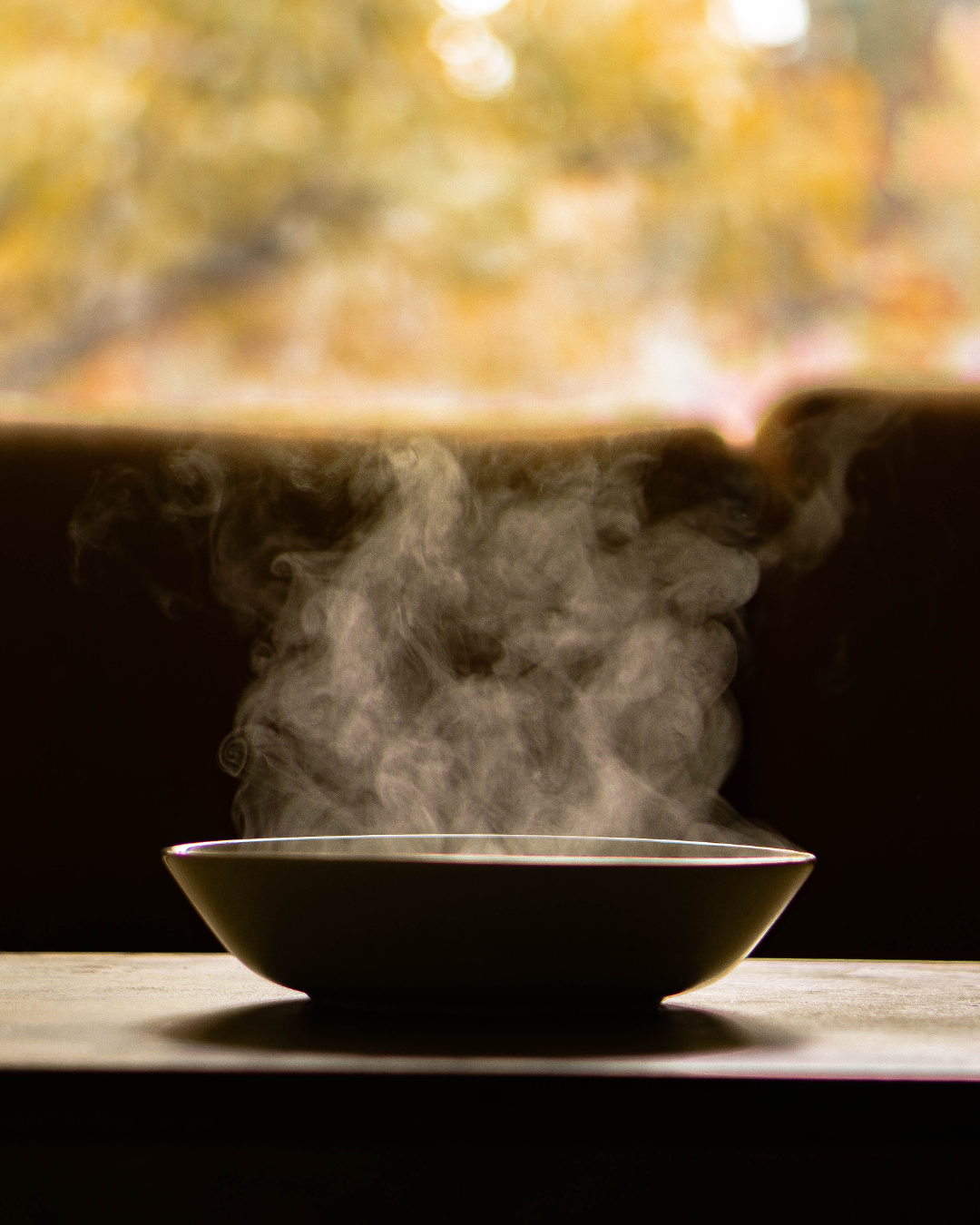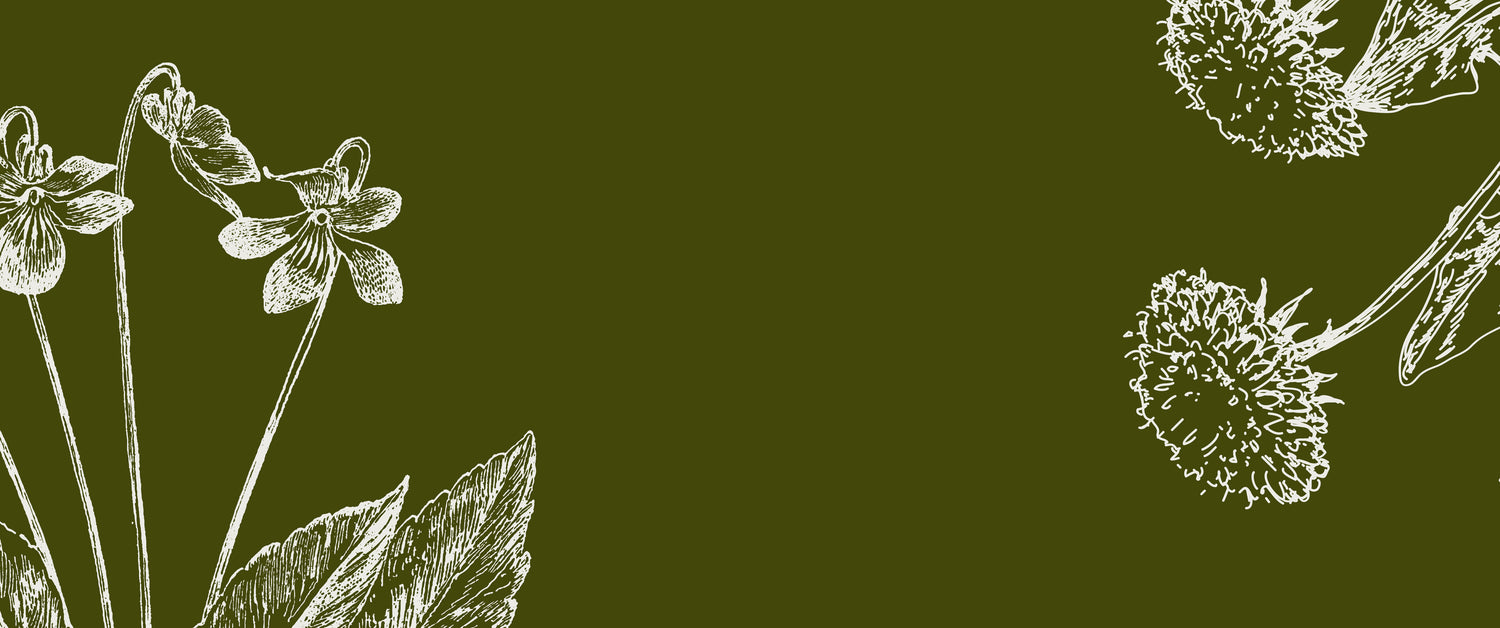Latin Name: Berberis aquifolium
Herb Class/Action: Alterative, Hepatic, Bitter Tonic, Cholagogue, Healthy Inflammatory Response Support
Parts Used: Root, root bark
Flavors: Bitter
Energetics: Cooling, drying
Traditional Benefits: Supports our body’s natural healing process, liver support, digestive support, cardiovascular support, blood support, skin support, hormone support
Closer to a tart berry than an actual grape, the Oregon grape (also known as holly-leaved barberry) is a bitter herb, historically harvested for its roots as a tool for digestive and microbiome health, liver support, and general well-being.*
Oregon Grape is an evergreen shrub, with clusters of berries (resembling bunches of grapes) emanating from its bright yellow flowers. The shrub is native to mid-to-low elevation regions within the Pacific Northwest (hence the name, Oregon). Though the berries are edible, the best bioactives come from the base of the plant. In the spring or fall, herbalists harvest the roots and stem bark for use.

In Traditional Chinese Medicine and Ayurveda, Oregon Grape is used as a cooling herb — dispelling hot, damp stagnation relating to the liver and gallbladder meridians. Native American tribes (including the Apache, Nitinaht, Sanspoil, Miwok, and Blackfoot people) used Oregon Grape (once known as Indian barberry) for balancing bowel health, occasional digestive issues like gas and bloating, overall digestive and microbiome health, and more.*
The chemical compound responsible for Oregon grape’s medicinal qualities is an isoquinoline alkaloid called berberine. Berberine is also useful in promoting healthy blood sugar metabolism, supporting the cardiovascular system, and supporting the liver and gallbladder.*
The species name, “aquifolium” comes from a combination of two Latin words: aqua (water) and folium (leaf)—describing the shiny, wet appearance of the herb’s leaves.
















